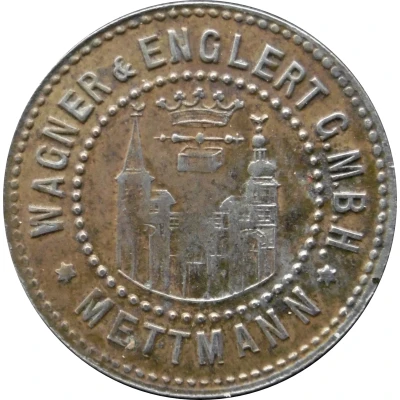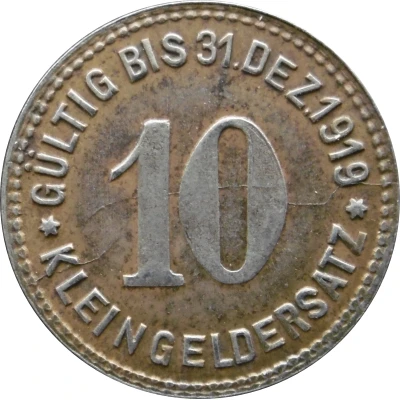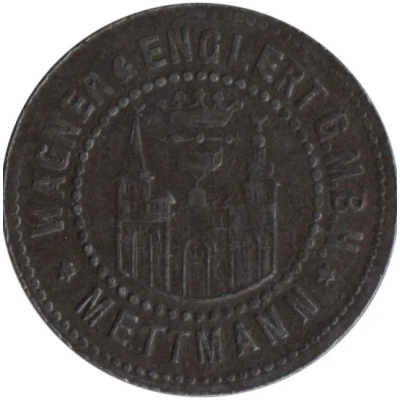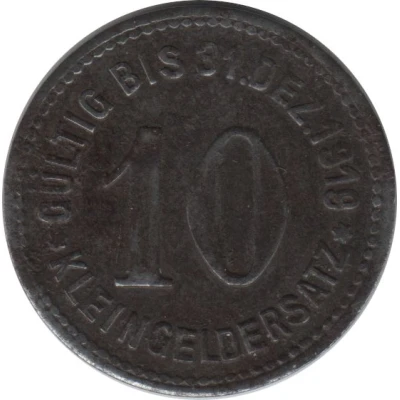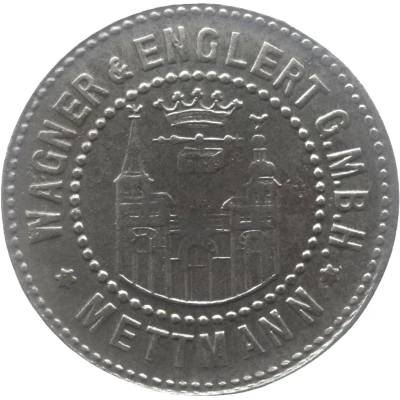
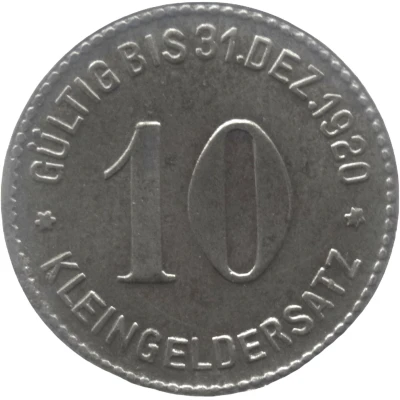

© Willem63 (CC BY-NC-SA)
10 Pfennigs - Mettmann (Wagner and Englert G.M.B.H.) ND
| Iron | 3.9 g | 23.2 mm |
| Issuer | City of Mettmann (Prussian province of Rhine) |
|---|---|
| Type | Standard circulation coin |
| Value | 10 Pfennigs (10 Pfennige) (0.10) |
| Currency | Mark (1914-1924) |
| Composition | Iron |
| Weight | 3.9 g |
| Diameter | 23.2 mm |
| Shape | Round |
| Technique | Milled |
| Orientation | Medal alignment ↑↑ |
| Demonetized | 31 December 1920 |
| Updated | 2024-10-04 |
| Numista | N#39773 |
|---|---|
| Rarity index | 90% |
Reverse
Pearl rim, legend circling denomination
Script: Latin
Lettering:
GÜLTIG BIS 31.DEZ.1920
10
✶ KLEINGELDERSATZ ✶
Edge
Plain
Comment
Menzel: BBBInteresting fact
One interesting fact about the 10 Pfennigs - Mettmann coin is that it was made of iron, which was a unusual choice of material for coins at the time. Most coins were made of precious metals like gold, silver, or copper, but the 10 Pfennigs - Mettmann coin was made of iron, which was a less valuable metal. This choice of material was likely due to the economic conditions of the time, as the use of iron was seen as a way to reduce the cost of producing coins. Despite being made of a less valuable metal, the 10 Pfennigs - Mettmann coin is still a valuable collector's item today, and its unique composition makes it stand out among other coins of its time.
